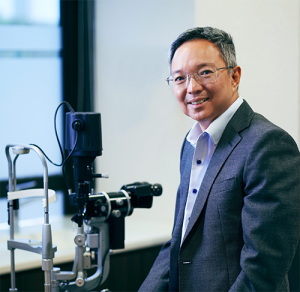Cataracts not only significantly affect your vision but your daily life as well. This eye condition is characterised by cloudy vision, glare sensitivity, reduced colour perception, and even double vision. As such, it can make day-to-day activities increasingly challenging. Working with a cataract specialist can help you get the care and treatment you need to improve your vision in the long run. However, when you’re in your early stages, you may not need to get surgery right away. In fact, you can make certain lifestyle changes that can help manage your condition.
Living with cataracts doesn’t mean you have to compromise your quality of life. With this, we give you important health and safety tips to help you navigate through the difficulties of learning to adapt to your condition before your cataract surgery in Singapore.
1. Wear Sunglasses That Block UV Rays
Protecting your eyes against the harmful UV rays of the sun is crucial in slowing down the progression of cataracts and reducing discomfort from glare. Opt for high-quality sunglasses that block both UVA and UVB rays. UV rays can damage the proteins in your eye’s lens, leading to cataract development. By wearing proper sunglasses, you not only shield your eyes from UV radiation but also lower the risk of other eye conditions like macular degeneration, which can cause vision loss.
2. Avoid Night Driving
Cataracts can make night driving challenging due to increased glare and reduced night vision. When possible, it’s advisable to avoid driving at night or in low-light conditions. Consider carpooling with someone who can take over the wheel during these times or use public transportation and taxi services as safer alternatives. Adequate lighting and well-maintained headlights in your vehicle can also help improve visibility at night.
3. Quit or Avoid Smoking and Alcohol Intake
Both smoking and excessive alcohol consumption are known to exacerbate cataract development. Smoking introduces harmful chemicals into the body that can affect the eyes, while alcohol can lead to dehydration, which can impact eye health. By quitting smoking and moderating alcohol consumption, you not only significantly slow down the progression of cataracts but also gain numerous other health benefits. Your overall eye health will improve, and you’ll reduce the risk of other eye conditions.
4. Maintain a Nutritious Diet
A well-balanced diet is essential in maintaining good eye health. Foods rich in antioxidants, vitamins, and minerals can help slow cataract progression and support overall eye health. Incorporate items like leafy greens (e.g., spinach and kale), colourful fruits (e.g., berries and citrus fruits), and foods with omega-3 fatty acids (e.g., fatty fish like salmon) into your diet. Additionally, staying hydrated by drinking plenty of water is essential for maintaining the moisture in your eyes.
5. Manage Conditions Affecting Your Eye Health
For individuals with diabetes, managing blood sugar levels is critical. Diabetes can accelerate cataract development, and uncontrolled blood sugar levels can lead to diabetic retinopathy, another serious eye condition. Regular diabetic eye check-ups are essential to detect any issues early on and take appropriate action to prevent further damage. Properly managing diabetes through diet, medication, and lifestyle changes can significantly benefit your eye health.
Trust EyeWise Vision for Cataract Care and Treatment
Maintaining a healthy lifestyle and protecting your eyes before your cataract surgery in Singapore can play a part in optimising outcomes. Finding a cataract specialist can also improve your outcomes and help you get the care you need, from the first assessment and pre-op to post-op.
Our eye doctor at EyeWise Vision has knowledge of complex cataract surgical methods and has also completed overseas clinical fellowships in the US in complex lens surgery and iris repair. They have extensive experience working with cataract patients and patients with eye conditions in Singapore. You can have peace of mind knowing you are in capable hands when you entrust your cataract care to our professional.
Learn more about cataract care by knowing when you need to see a cataract specialist and how a post-cataract surgery YAG Laser Capsulotomy Procedure works.

Dr. Christopher Khng, specializes in Complex Cataract and Anterior Segment Reconstruction Surgery, in particular, Iris Reconstruction and surgery for Aniridia. His other areas of expertise include Complex Lens surgery, New Lens and Phacoemulsification technologies, Refractive surgery, Phakic IOLs (the Implantable Collamer Lens, ICL), and small-incision, topical anesthesia phacoemulsification cataract surgery. Dr. Khng is a member of the Singapore Medical Association (SMA), a Fellow of the American Academy of Ophthalmology, the American Society of Cataract and Refractive Surgery (ASCRS), and the European Society of Cataract and Refractive Surgery (ECSRS). He is registered with the Singapore Medical Council (SMC) in Singapore and with the General Medical Council (GMC) for practice in the United Kingdom.

